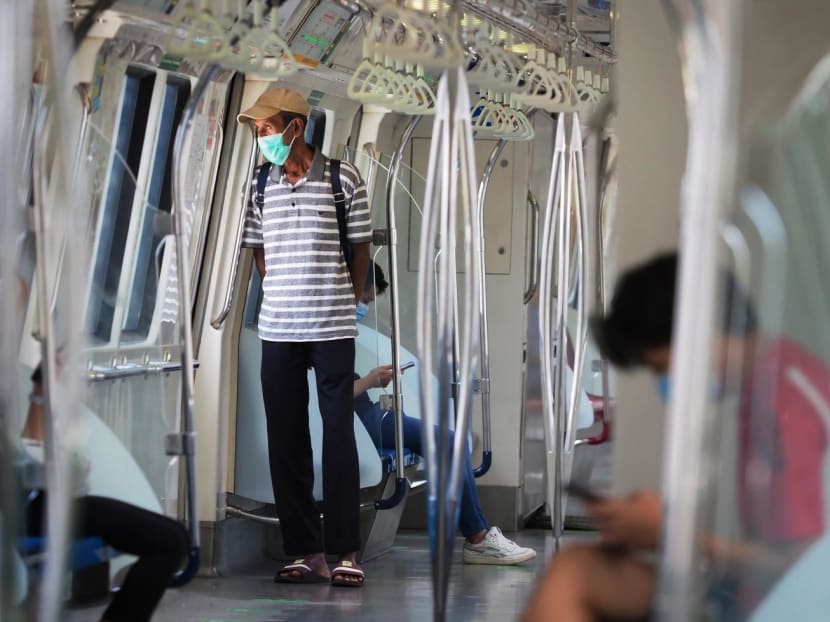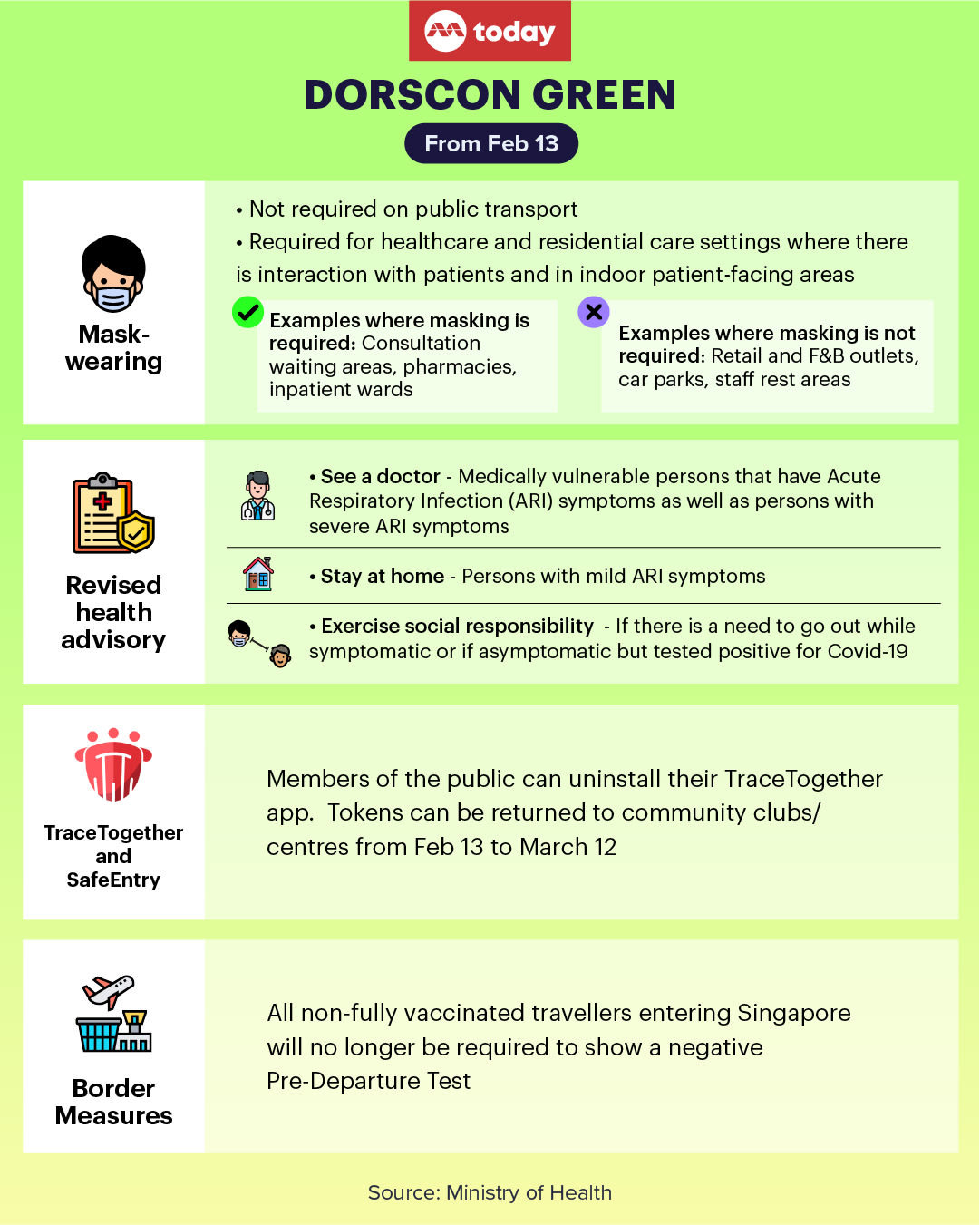Mask-wearing no longer required on public transport and in some indoor healthcare settings from Feb 13
SINGAPORE — In light of the improved global Covid-19 situation, mask-wearing will no longer be required on public transport and parts of indoor healthcare and residential care settings from next Monday (Feb 13), the Ministry of Health (MOH) said.

- Singapore will not mandate that people wear masks on public transport from Feb 13
- Masks will still have to be worn in indoor healthcare and residential care settings where patient care is delivered
- Other authorities, such as the Singapore Food Agency, may require people to wear masks when handling food
- Singapore will relax all remaining Covid-19 border controls from Feb 13
- The easing of Covid-19 safety measures is in light of the improved global Covid-19 situation
SINGAPORE — In light of the improved global Covid-19 situation, mask-wearing will no longer be required on public transport and parts of indoor healthcare and residential care settings from next Monday (Feb 13), the Ministry of Health (MOH) said.
In indoor healthcare and residential care settings, masks still have to be worn by visitors, workers and patients where there is interaction with patients and in patient-facing areas, such as at hospital wards, clinics and nursing homes.
MOH said in a statement on Thursday (Feb 9) that this will be a "requirement" rather than mandated under the Covid-19 regulations.
Professor Kenneth Mak, director of medical services at MOH, said at a press conference held by the multi-ministry task force tackling the Covid-19 pandemic that mask wearing will be a requirement in areas where patient care is delivered.
“But if you are in an area in the hospital that is not related to the delivery of care, (such as) the cafeteria in the hospital… there is no requirement from us for that purpose."
He also said that hospitals here will look at their operational requirements and identify "opportunities to lighten up" and minimise mask-wearing in some settings.
Giving an update on the Covid-19 situation here, MOH said that about 80 per cent of the Singapore population has achieved minimum protection, and around half are up to date with their vaccinations. Many have also recovered from infection during past Covid-19 waves.
"With this, the risk of Covid-19 infections leading to severe illness or death has become very low, comparable to other endemic respiratory diseases, such as influenza or pneumococcal infections," it said.
In January, the daily number of Covid-19-related hospitalisations here stayed below 100, and daily cases related to Covid-19 in intensive care units remained in the single digits.
On the global situation, the ministry said that the number of Covid-19 cases has been declining since late December last year, and virus strains that led to higher severity in disease have not emerged.
"Infection waves in the northern hemisphere and in China are rapidly subsiding," the ministry said, adding that there was also no significant increase in the number of imported cases here.
"The World Health Organization has recently acknowledged that the pandemic is nearing a turning point, signalling that the global Covid-19 emergency may be ending soon," MOH added.
Besides healthcare, other authorities may also require people to wear masks. One example is the Singapore Food Agency, which has required food handlers to wear a mask or spit guard for food safety reasons.
MOH said that private enterprises may also choose to maintain mask-wearing requirements as company policy for workplace health and safety or business continuity reasons.
“As mask-wearing is an effective way to minimise the risk of infectious diseases, we encourage members of the public, especially the elderly and immunocompromised, to wear masks in crowded places, or when visiting or interacting with vulnerable persons.
“We strongly advise individuals who are unwell with symptoms of Covid-19 or other respiratory infections to wear a mask when they need to leave their homes,” it added.

STEPPING DOWN BORDER MEASURES
Due to the stable and improving global Covid-19 situation and the low impact of imported cases on Singapore's healthcare capacity, MOH said that Singapore will also stand down remaining Covid-19 border controls from Monday.
This means that all travellers who are not fully vaccinated and entering Singapore will no longer have to show proof of a negative pre-departure Covid-19 test.
Short-term visitors who are not fully vaccinated will also no longer be required to purchase Covid-19 travel insurance.
However, the vaccinated travel framework, which was launched last April to facilitate the safe resumption of international travel, will remain in place for reactivation if there are any "international developments of concern", such as new severe variants for Covid-19 or signs that the healthcare capacity here is strained by imported cases.
MOH said that it continues to screen travellers for other infectious diseases of concern, such as Yellow Fever, Middle East Respiratory Syndrome and Ebola.








